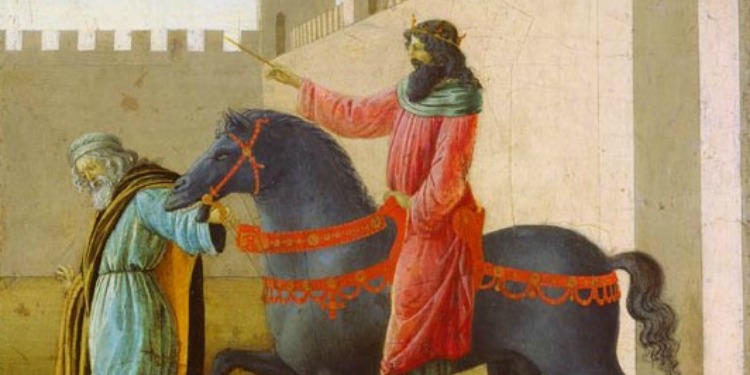Righteous Gentiles and the Story of Purim
The Fellowship | March 21, 2019

Today, the Jewish people observe one of the most joyous holidays, the biblical celebration of Purim. While Purim celebrates the story of Esther and the Jewish people’s escape from Persian rule, Mosaic’s Andrew Koss also writes that one figure in the story is a biblical example of a Righteous Gentile:
The main event of the upcoming holiday of Purim is the reading of the Megillah, which tells the story of how brave Esther and pious Mordecai saved Persian Jewry from the genocidal schemes of the wicked Haman. In the Ashkenazi tradition, the public reading of the scroll is followed by reciting a poem whose unknown author lived no later than the 11th century. The concluding lines are usually sung to an up-beat tune:
Cursed is Haman, who sought to destroy me;
Blessed is Mordecai the Jew.
Cursed is Zeresh, wife of my tormentor;
Blessed is Esther, who protected me—
And also Harbonah, who is to be remembered for the good!
The reference to Haman’s wife Zeresh, who plays only a supporting role in the book of Esther, can be chalked up to poetic license—a female villain in counterpoint to the story’s heroine. But what of Harbonah, a decidedly minor character mentioned only once in the entire book, and whose appearance in the poem’s final verse breaks the stanza’s metrical form and rhyme scheme? And what of the epithet “to be remembered for the good”?
In the Megillah itself, Harbonah comes onstage near the story’s denouement, just after Queen Esther has exposed to her husband the nefarious plan of his vizier Haman:
And Harbonah, one of the chamberlains [sarisim], said before the king, Behold also, the gallows fifty cubits high, which Haman had made for Mordecai, who had spoken good for the king, standeth in the house of Haman. Then the king said, Hang him thereon.
In other words, Harbonah is there to make sure that Haman gets his proper comeuppance by being hanged on the gallows built for his nemesis Mordecai. As for his epithet, our anonymous poet’s authority is Rabbi Pinḥas, who states in the Jerusalem Talmud that on Purim one should say, “Harbonah, to be remembered for the good.”
Harbonah’s intervention, even if rather cautiously targeted at one who had already earned the king’s disfavor, was certainly commendable. But the question remains: why this special treatment? A closer look may reveal a facet of the Purim story with enduring relevance…
